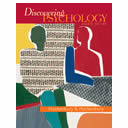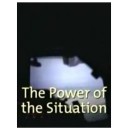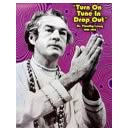Discovering Psychology
 Highlighting major new developments in the field, this updated edition of Discovering Psychology offers high school and college students, and teachers of psychology at all levels, an overview of historic and current theories of human behavior. Stanford University professor and author Philip Zimbardo narrates as leading researchers, practitioners, and theorists probe the mysteries of the mind and body.
Highlighting major new developments in the field, this updated edition of Discovering Psychology offers high school and college students, and teachers of psychology at all levels, an overview of historic and current theories of human behavior. Stanford University professor and author Philip Zimbardo narrates as leading researchers, practitioners, and theorists probe the mysteries of the mind and body.
Based on extensive investigation and authoritative scholarship, this introductory course in psychology features demonstrations, classic experiments and simulations, current research, documentary footage, and computer animation. This series is also valuable for teachers seeking to review the subject matter. Produced by WGBH Boston with the American Psychological Association. 1990, 2001.
1. Past, Present, and Promise
This introduction presents psychology as a science at the crossroads of many fields of knowledge, from philosophy and anthropology to biochemistry and artificial intelligence. With Dr. Mahzarin Banaji of Harvard University and Dr. Emanuel Donchin of the University of Illinois.
2. Understanding Research
This program examines the scientific method and the ways in which data are collected and analyzed — in the lab and in the field — with an emphasis on sharpening critical thinking in the interpretation of research findings. With Dr. Christina Maslach of the University of California, Berkeley, and Dr. Daryl Bem of Cornell University.
3. The Behaving Brain
This program discusses the structure and composition of the brain: how neurons function, how information is collected and transmitted, and how chemical reactions determine every thought, feeling, and action. With Dr. John Gabrieli of Stanford University and Dr. Mieke Verfaellie of Veterans Medical Hospital, Boston, Massachusetts.
4. The Responsive Brain
How the brain controls behavior and, conversely, how behavior and environment influence the brain’s structure and functioning are the focus of this program. With Dr. Michael Meaney of McGill University and Dr. Russell Fernald of Stanford University.
5. The Developing Child
This program traces the nature vs. nurture debate, revealing how developmental psychologists study the contributions of both heredity and environment to child development. With Dr. Renee Baillargeon of the University of Illinois and Dr. Judy De Loache of the University of Illinois.
6. Language Development
The development of language has many facets to explore. This program looks at how developmental psychologists investigate the human mind, society, and culture by studying children’s use of language in social communication. With Dr. Jean Berko-Gleason of Boston University and Dr. Ann Fernald of Stanford University.
7. Sensation and Perception
This program demonstrates how visual information is gathered and processed, and how our culture, previous experiences, and interests influence our perceptions. With Dr. David Hubel of Harvard University and Dr. Misha Pavel of the Oregon Graduate Institute of Science and Technology.
8. Learning
Prominent researchers — Pavlov, Thorndike, Watson, and Skinner — have greatly influenced today’s thinking about how learning takes place. This program examines the basic principles of classical and operant conditioning elaborated by these renowned figures. With Dr. Howard Rachlin of the State University of New York at Stony Brook and Dr. Robert Ader of the University of Rochester.
9. Remembering and Forgetting
This program looks at the complex process called memory: how images, ideas, language, and even physical actions, sounds, and smells are translated into codes, represented in the memory and retrieved when needed. With Dr. Richard Thompson of the University of Southern California and Dr. Diana Woodruff-Pak of Temple University.
10. Cognitive Processes
This program is an exploration into the higher mental processes - reasoning, planning, and problem solving - and why the “cognitive revolution” is attracting such diverse investigators from philosophers to computer scientists. With Dr. Howard Gardner of Harvard University and Dr. Michael Posner of the University of Oregon.
11. Judgment and Decision Making
Exceedingly complex processes are involved in the making of judgments and decisions. This program examines how and why people make good and bad judgments, and the psychology of taking risks. With Dr. Daniel Kahneman of Princeton University and the late Dr. Irving Janis of Yale University.
12. Motivation and Emotion
This program reviews what researchers are discovering about why we act and feel as we do, from the exhilaration of love to the agony of failure. With Dr. Norman Adler of Yeshiva University and Dr. Martin Seligman of the University of Pennsylvania.
13. The Mind Awake and Asleep
Our varying levels of consciousness empower us to interpret, analyze, and direct our behavior in flexible ways. The nature of sleeping, dreaming, and altered states of consciousness are explored in this program. With Dr. Ernest Hartman, formerly of Tufts University, and Dr. Robert McCarley of Harvard Medical School.
14. The Mind Hidden and Divided
This program shows how experiences that take place below the level of consciousness alter our moods, bias our actions, and affect our health — as demonstrated in repression, discovered and false memory syndromes, hypnosis, and split-brain cases. With Dr. Jonathan Schooler of the University of Pittsburgh and Dr. Michael Gazzaniga of Dartmouth College.
15. The Self
Psychologists systematically study the origins of self-identity and self-esteem, the social determinants of self-conceptions, and the emotional and motivational consequences of beliefs about oneself. This program explores their methods of discovery. With Dr. Hazel Markus of Stanford University and Dr. Teresa Amabile of Harvard University. Updated.
16. Testing and Intelligence
This program peers into the field of psychological assessment — the efforts of psychologists and other professionals to assign values to different abilities, behaviors, and personalities. With Dr. Claude Steele of Stanford University and Dr. Robert Sternberg of Yale University.
17. Sex and Gender
This program explores the ways in which males and females are similar and different, and how gender roles reflect social values and psychological knowledge. With Dr. Michael Meaney of McGill University and Dr. Eleanor Maccoby of Stanford University.
18. Maturing and Aging
What really happens, physically and psychologically, as we age? This program looks at how society reacts to the last stages of life. With Dr. Laura Carstensen of Stanford University and Dr. Sherry Willis of Penn State University.
19. The Power of the Situation
This program examines how our beliefs and behavior can be influenced and manipulated by other people and subtle situational forces, and how social psychologists study human behavior within its broader social context. With Dr. Ellen Langer of Harvard University and Dr. Philip Zimbardo of Stanford University.
20. Constructing Social Reality
Many factors contribute to our interpretation of reality. This program demonstrates how understanding the psychological processes that govern our behavior may help us to become more empathetic and independent members of society. With Steven Hassan, M.Ed., of the Freedom of Mind Resource Center and Dr. Robert Cialdini of Arizona State University.
21. Psychopathology
The major types of mental illness are presented. Schizophrenia, phobias, and affective disorders are described, along with the major factors that affect them — both biological and psychological. With Dr. Irving Gottesman of the University of Virginia and Dr. E. Fuller Torrey of the National Institute of Mental Health.
22. Psychotherapy
This program surveys the relationships among theory, research, and practice, and how treatment of psychological disorders has been influenced by historical, cultural, and social forces. With Dr. Hans Strupp of Vanderbilt University and the late Dr. Rollo May.
23. Health, Mind, and Behavior
This program presents a rethinking of the relationship between mind and body. A new bio-psychosocial model is replacing the traditional biomedical model. With Dr. Judith Rodin of the University of Pennsylvania and Dr. Neal Miller of Yale University.
24. Applying Psychology in Life
Psychology is currently being applied in innovative ways to practical situations in the areas of human factors, law, and conflict negotiation. With Dr. Malcolm Cohen of NASA Ames Research Center, Dr. Stephen Ceci of Cornell University, and Dr. James Maas of Cornell University.
25. Cognitive Neuroscience
Cognitive neuroscience represents the attempt to understand mental processes at the level of the brain’s functioning and not merely from information-processing models and theories. It relies heavily on an empirical analysis of what is happening in the brain, and where, when a person thinks, reasons, decides, judges, encodes information, recalls information, learns, and solves problems. Cognitive neuroscience allies psychologists, biologists, brain researchers, and others in what is perhaps the most dramatic advance in the last decade of psychological research. With Dr. John Gabrieli of Stanford University and Dr. Stephen Kosslyn of Harvard University.
26. Cultural Psychology
This newly emerging field is integrating cross-cultural research with social and personality psychology, anthropology, and other social sciences. Its main new perspective is centered on how cultures construct selves and other central aspects of individual personality, beliefs, values, and emotions — much of what we are and do. This area has become more important in both psychology and American society with the globalization of our planet, increasing interaction of people from different cultural backgrounds, and emerging issues of diversity. With Dr. Hazel Markus of Stanford University, Dr. Kaipeng Peng of the University of California, Berkeley, and Dr. Ricardo Munoz of the University of California, San Francisco and San Francisco General Hospital.




I like this article and I think that I will soon be reading it again. It helps me understand more about psychology and how many types of psychology are out there. Its also nice that it gives a brief description of each. This also help me out just in case I would like to know more and one of these I can come back and read about it once more before going in full depth of research about it.
Very compelling series on psychology, don't let the cheesy production fool you this is packed full of relevant information.
NONE of the films can be watched in the UK for some reason..blocked.
This is not psychology. This is pure scientism. Sad.
Thank you for uploading this. I had intended to only watch one episode and ended up watching the whole series. Extremely informative and a good base for any first year psychology student or individual interested in psychology. The footage may be old but as a mental health nurse I found the research messages to still be relevant in mental health practice.
Thanks, I'll watch again
This is probably one of the most valuable and amazing documentaries on this website. I really hope more people watch and comment on it!
I'm psychology major. I accidentally found these series when I was browsing the internet. I was surprised to see how much of this information is still true today considering the series are pretty old. They are very accurate, interesting, and well explained. I'd love to see something like this but currently made.
Hi, I just finished going through this entire series. I loved every minute of it, do you know which text book this course uses? I want to read about every one of these topic far more deeply. Would you recommend any pdf resources.
Hi, Im currently studying psychology but in dutch and we use 'Psychologie,een inleiding' which is a translation of Philiph Zimbardo's book An introduction to Psychology.You can read most of it on Google Books
Ill est excellent series.
i have accidently on purpose opened an old filing cabinet deep and hidden in the labyrinth of my mind and now i wish i hadnt.
i am mind blown with the memeories which trickled thru at first and amused me for a while until a tsunami of memeories hit me big time, i am amazed at the power of my mind but only wished some of it was not there, on a good note i now remember that i have a 40 year old stocks which is obscene and i feel my mind is worth more, i am strugling not to name names cos i will open a big can of worms, its intresting but shocking and i realise that i am in shock and very sad too, i know now that the brain is a very complex computer and every thing is in there until you discover the passwords to the entry of the time place experience, then it all makes clear sense. de ja vue is sometims true
Now maybe you can actually USE that brain to learn how to write coherently. We won't hold our breath.
Perhaps you can give yourself an uppercut for forgetting that in the online world, English is not everyone's first language. Not everyone is privileged with education; if you had used YOUR brain, you would have figured that out.
not all people are as dumb as you to 1) only know one language. 2) think everybody only knows one language, which is English.
Excellent series
For Capricious and anyone else who wish to put these vids into a playlist or anyone with a bandwith too slow to watch them online; mozila has an awesome addon called 'DownloadHelper' which allows you to download almost any embedded video file.
I'm using it to download this series now as we speak.
Hope this helps you guys.
Cheers
I thought this video was an excellent way to introduce the world of psychology to individuals and students.
Had to watch most of these in my first year psychology classes.
VERY good introduction into psychology and helps explain how it is an actual science.
I just finished watching all 26 episodes. Its a great series for those interested in psychology or looking for an introduction.
just watched the first part. the documentation seemed quite good and clear. dwnlding the second episode as I speak. :)
this site is so cool, it makes me utterly regret my slow broadband connection. :( so many interesting documentaries to watch here...
I'll try to watch this series full-length. thank you Vlatko for uploading this. :D
Haha, looks like I'll be ahead for my AP Psych class in the fall! :P
This is really good. It has alot of important information about the brain.
I had no idea psychology was so heavily based on animal experimentation. Not recommended for animal lovers.
Probably no way to put these into a playlist, eh Vlatko?
I'm afraid not @Capricious.
really good stuff! I've watched almost half of them so far, very enjoyable and kowledgefull! I would advise anyone with any background to watch this series
well a very complete beginners guide to psych. Everyone should see each and every episode and take notes while doing so.
This is an awesome series. I've seen a few episodes but had no idea there were this many. It is a little dated - early 90s, maybe even late 80s. Nonetheless, the information and concepts aren't by any means outdated. Sure we've learned more and they could elaborate on some areas better with this knowledge. But for the layperson, this series is very comprehensive and educational.